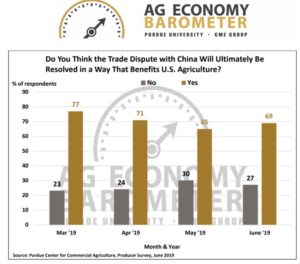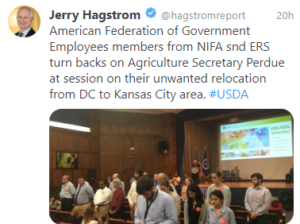Every time I think the USDA has done the worst damage it possibly can—I’m still reeling from the destruction of the Economic Research Service—it comes up with another bad idea.
This time, the USDA has proposed to “close a SNAP eligibility loophole,” in quotes because this is USDA-speak for throwing people off the rolls.
The “loophole” refers to permitting states to automatically enroll low-income people on SNAP (and low-income children on school meals) if they qualified for temporary financial assistance.
But, as the agency explains in its press release,
The proposed rule would fix a loophole that has expanded SNAP recipients in some states to include people who receive assistance when they clearly don’t need it. In fact, the depth of this specific flexibility has become so egregious that a millionaire living in Minnesota successfully enrolled in the program simply to highlight the waste of taxpayer money.
The press release goes on to say that
This proposal gives USDA the ability to save billions of dollars, ensuring nutrition assistance programs are delivered with consistency and integrity to those most in need.
Yeah. Right.
A USDA Fact Sheet explains that 3.1 million SNAP recipients get benefits because of the loophole.
USDA officials told reporters that 300,000 children will become ineligible for school meals unless their parents now go through application processes.
The USDA’s cost/benefit analysis, has interesting things to say, first about how much money will this measure save:
$9.4 billion over the five years 2019-2023. Included in this is an estimated reduction in Federal transfers of approximately $10.543 billion over the five-year period as well as a $1.157 billion increase in Federal administrative costs. The Department estimates an additional $1.157 billion in administrative costs to State agencies (for a total of $2.314 billion in additional administrative costs).
Bottom line: Just under $2 billion per year in savings, if the USDA’s numbers are right.
But what about costs?
The Department estimates that approximately 9 percent of currently-participating SNAP households will lose eligibility for SNAP because
their incomes or resources exceed Federal SNAP eligibility standards (an estimated 1.7 million households in FY 2020, containing 3.1 million individuals).
In addition, the Department estimates that households that remain eligible for SNAP (approximately 17.2 million households containing 34.7 million individuals) and new SNAP applicants will face additional burden associated with the application process, at a cost of approximately $5 million annually.
And all of this is likely to be an underestimation:
While overall about 9 percent of all households currently participating in SNAP will lose eligibility under this proposed rule, households with one or more elderly individual(s) and/or earned income will be disproportionately affected. Approximately 13.2 percent of all SNAP households with elderly members will lose benefits (7.4 percent will fail the income test and 5.8 percent will fail the resource test), as will 12.5 percent of households with earnings (8.6 percent will fail the income test and another 3.9 percent will fail the resource test). Households without children will also be disproportionately affected, with 10.1 percent losing eligibility (approximately 5.5 percent will fail the income test and an additional 4.6 percent will fail the resource test.).
You don’t like this? File comments. The deadline is September 23.
HOW TO FILE COMMENTS: Click the Comment button here.
The Food and Nutrition Service, USDA, invites interested persons to submit written comments on this proposed rule. Comments may be submitted in writing by one of the following methods:
- Federal eRulemaking Portal: Go to http://www.regulations.gov. Follow the online instructions for submitting comments.
- Mail: Send comments to Program Design Branch, Program Development Division, Food and Nutrition Service, USDA, 3101 Park Center Dr., Alexandria, VA 22302. Email: Send comments to SNAPPDBRules@usda.gov. Include Docket ID Number [FNS-2018-0037], “Revision of Categorical Eligibility in the Supplemental Nutrition Assistance” in the subject line of the message.
- All written comments submitted in response to this proposed rule will be included in the record and will be made available to the public. Please be advised that the substance of the comments and the identity of the individuals or entities submitting the comments will be subject to public disclosure. FNS will make the written comments publicly available on the internet via http://www.regulations.gov.




